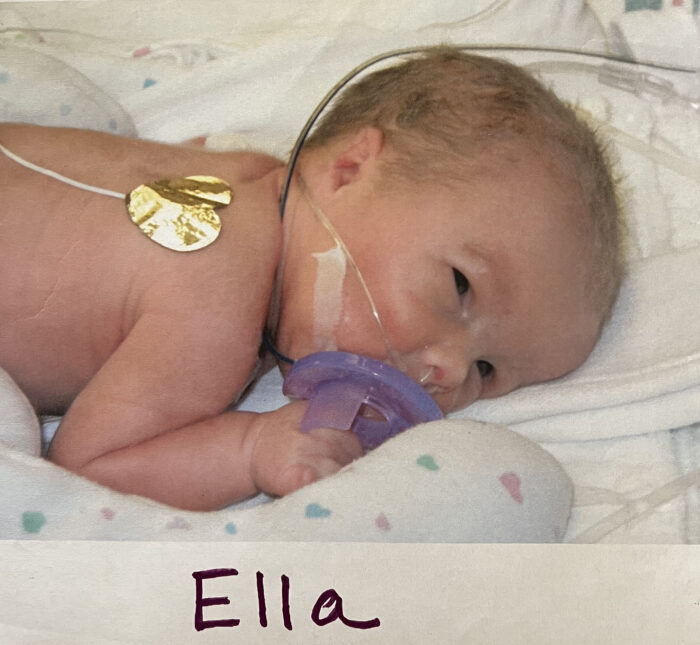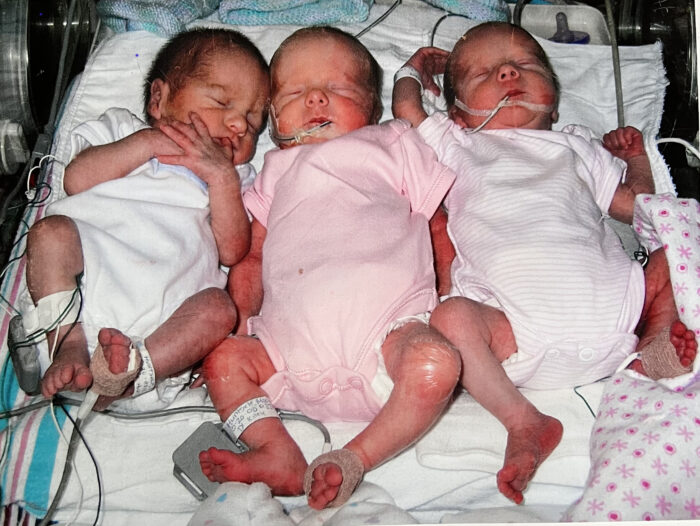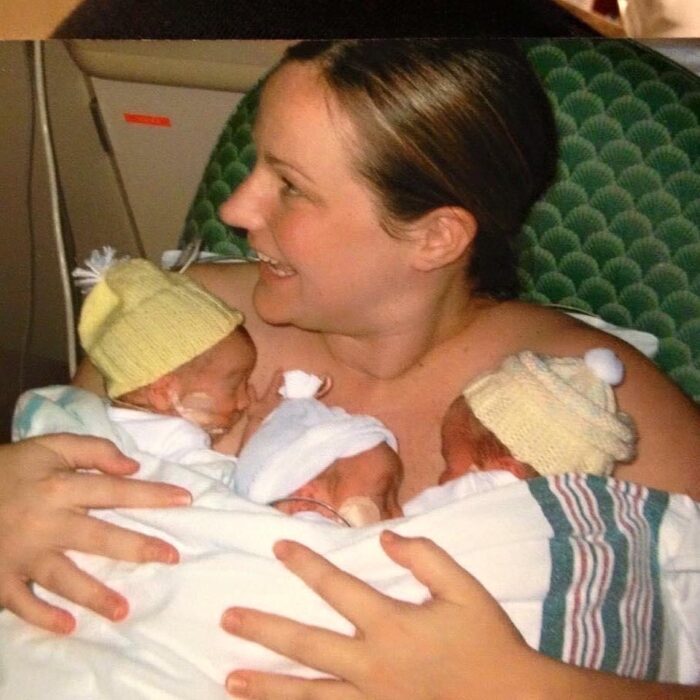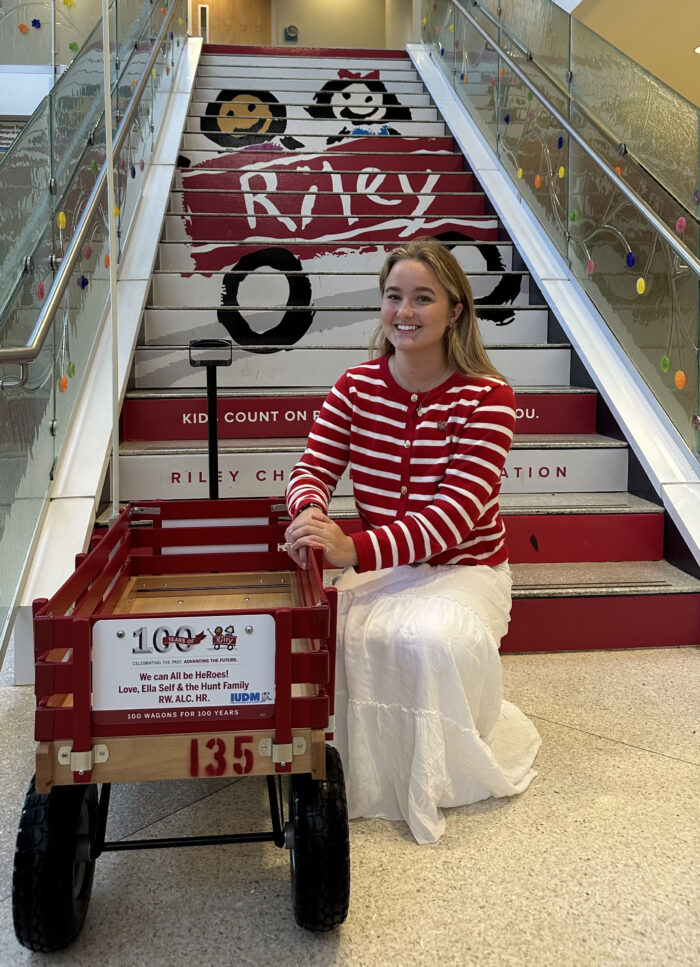At Indiana University, the spring semester brings more than warm weather and final exams; it brings a sense of purpose. During Old Riley Bucket Week, students rally behind a cause that’s much larger than themselves: supporting Riley Hospital for Children through the Indiana University Dance Marathon.
While the impressive fundraising totals are a central aspect of the event, there’s much more to the organization than just raising money. For many, IUDM becomes a transformative part of their college experience, holding a special place in their hearts, especially for those who were once Riley patients themselves.
For instance, Ella Self, a triplet, was born prematurely and owes her life to Riley Hospital for Children. When she and her siblings were born, they faced complications that required them to spend their first few weeks in the NICU. Self, however, experienced the most severe complications and had to remain in the NICU for two months. Her lungs and airways were underdeveloped, and her heart rate would drop dangerously low, prompting thorough care and observation from Riley staff.
“I had something called bradycardia and that’s when a baby’s heart rate gets so low, it like, it’s much lower than it should be, so mine got so low that the sensors couldn’t detect it, so part of it was that, like they, they didn’t want to send me home and not know my heart stopped, um but, so I had like house alarms on me, and then also when I would turn my head, my airways would close, so another alarm, so basically I was in this little box of like alarms, um and then I also had really low muscle tension, so like, I wasn’t able to like, like they were worried I wouldn’t be able to lift my head, like normal milestones that babies have,” Self said.
It is situations like these that highlight the profound impact Riley Hospital has on the lives of countless families. For Self and many others, IUDM is more than just an opportunity to give back to the hospital that saved their lives; it’s a chance to connect with others who have walked similar paths. Her story, though unique, is just one of many that serve as a powerful reminder of the work IUDM does. Beyond the fundraising efforts, IUDM fosters a community built on empathy, support, and resilience, that is determined to support those facing health struggles.
One of the most meaningful ways IUDM connects with patients is through a program that pairs each committee with a Riley buddy. This bond allows IUDM members to build relationships with the families, adding an intimate layer to the marathon experience. It’s not only a way to offer support, but also an opportunity for IUDM participants to interact with the patients, creating memories and forging connections that make the event all the more special for everyone involved.
“I’ve just gotten to meet so many, so many kids that when they get to come hangout with us, they forget about being treated at Riley, and they forget why they’re there, they’re just with a bunch of teenage, college kids, and they’re like running around like it’s the best thing ever, um, and they’re always just so excited, and the parents too, and the families, like, and the siblings, like, everybody gets, everybody gets like involved, so it’s not just about, like necessarily the patient, it’s also about their families, so they also get, like a normal feeling experience, and they’re just, every time I see them it just reminds me why I do it,” Self said.
Old Riley Bucket Week is more than just a week of fundraising and fun. For students, it’s an opportunity to give back to the hospital that saved lives like Self’s and connect with others on similar journeys. For families, it’s a reminder they’re not alone. IUDM is more than organization, it is a tight-knit community in which passion and a desire to help others are their driving motivators. Together, they are not just raising money; they are changing lives, making long-lasting relationships, and building hope for children and families.








